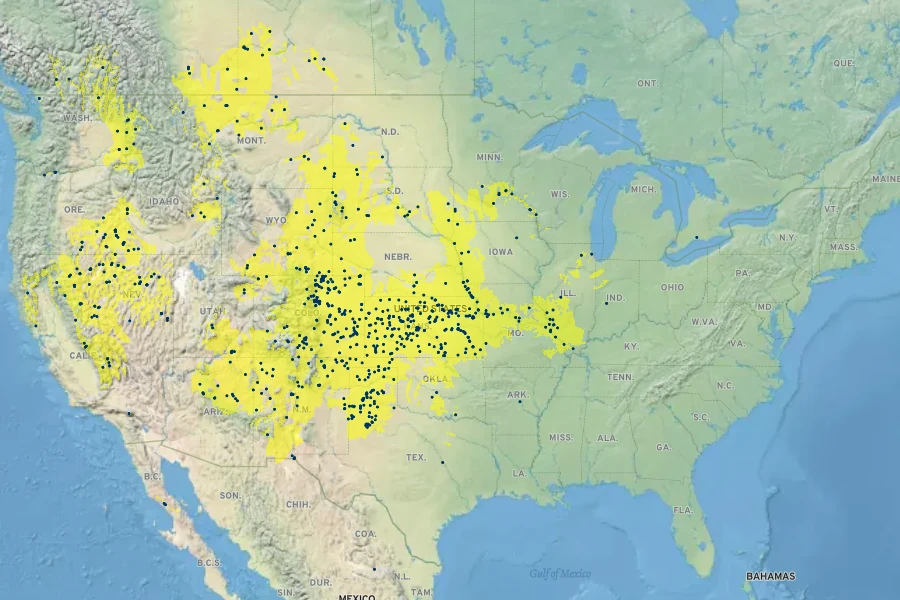Spreading Yellowcress
/
(Rorippa sinuata)
Spreading Yellowcress (Rorippa sinuata)
/

© Ryan Sorrells
CC BY 4.0
Image By:
© Ryan Sorrells
Recorded By:
Copyright:
CC BY 4.0
Copyright Notice:
Photo by: © Ryan Sorrells | License Type: CC BY 4.0 | License URL: http://creativecommons.org/licenses/by/4.0/ | Uploader: rynxs | Publisher: iNaturalist |












Summary
Rorippa sinuata, commonly known as Spreading Yellowcress, is a perennial herb that thrives in a variety of moist habitats including riparian zones, wet meadows, and the edges of lakes and streams in North America. It is particularly adapted to areas with seasonal flooding and can often be found in disturbed sites as well. This species typically produces sprawling stems that can reach up to 20 inches in length, with foliage characterized by deeply toothed or lobed leaves. The plant blooms with small, yellow flowers that are not particularly showy but can add a subtle charm to a naturalistic garden setting.
Spreading Yellowcress is valued for its ability to colonize and stabilize soil in wetland restoration projects and can be used in rain gardens or as a ground cover in moist areas of the landscape. It prefers full sun to part shade and requires consistently moist to wet soil conditions. While it is not known for any significant diseases or pests, its potential to spread outside its native range should be considered before planting. Gardeners should consult local regulations as Rorippa sinuata can spread aggressively in suitable conditions. CC BY-SA 4.0
Spreading Yellowcress is valued for its ability to colonize and stabilize soil in wetland restoration projects and can be used in rain gardens or as a ground cover in moist areas of the landscape. It prefers full sun to part shade and requires consistently moist to wet soil conditions. While it is not known for any significant diseases or pests, its potential to spread outside its native range should be considered before planting. Gardeners should consult local regulations as Rorippa sinuata can spread aggressively in suitable conditions. CC BY-SA 4.0
Plant Description
- Plant Type: Herb
- Height: 0.3-2 feet
- Width: 1-2 feet
- Growth Rate: Moderate
- Flower Color: Yellow
- Flowering Season: Spring, Summer
- Leaf Retention: Deciduous
Growth Requirements
- Sun: Full Sun, Part Shade
- Drainage: Fast, Medium
Common Uses
Bee Garden, Butterfly Garden, Edible*Disclaimer: Easyscape's listed plant edibility is for informational use. Always verify the safety and proper identification of any plant before consumption., Erosion Control, Low Maintenance
Natural Habitat
Thrives in riparian zones, wet meadows, and edges of lakes and streams in North America
Other Names
Common Names: Spreading Yellowcress, Pale Yellowcress, West Yellow Cress
Scientific Names: Rorippa sinuata, Nasturtium sinuatum, Nasturtium trachycarpum, Radicula sinuata, Radicula sinuata var. integra, Radicula trachycarpa, Rorippa trachycarpa, Sisymbrium sinuatum
GBIF Accepted Name: Rorippa sinuata
